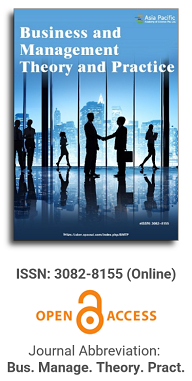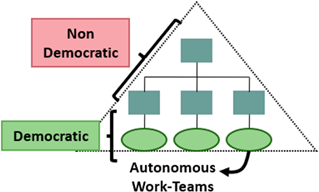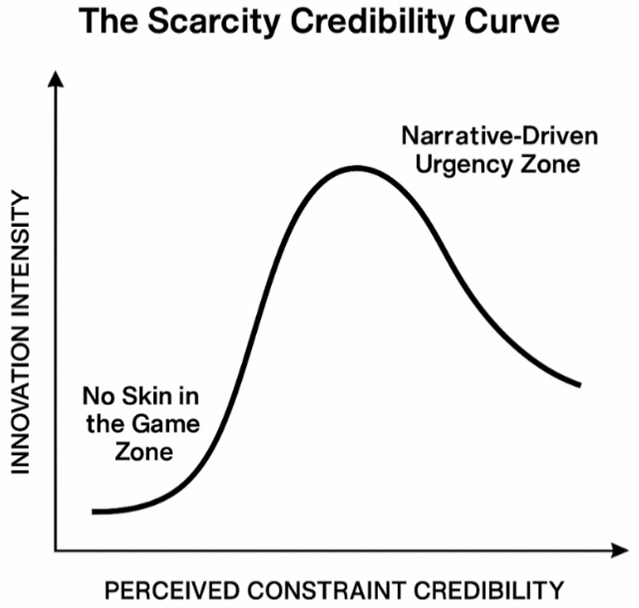
Asia Pacific Academy of Science Pte. Ltd. (APACSCI) specializes in international journal publishing. APACSCI adopts the open access publishing model and provides an important communication bridge for academic groups whose interest fields include engineering, technology, medicine, computer, mathematics, agriculture and forestry, and environment.


Quality of Jingdong Express delivery service in Longyao County evaluation
Vol 1, Issue 1, 2024
Download PDF
Abstract
This article aims to conduct a comprehensive questionnaire survey and analysis of the current state of express delivery in Longyao, focusing on different population segments. The research evaluates the reliability, validity, and factor analysis of the questionnaire to ensure the data’s accuracy and dependability. Findings have highlighted several critical issues with JD Express in Longyao County, including untimely problem resolution, insufficient logistics feedback, package damage, and low levels of informatization in rural areas. Proposed solutions to these challenges involve enhancing employee training, implementing effective measures to minimize package damage, and optimizing distribution strategies to improve service efficiency. By addressing these areas, the quality of JD Express services can be significantly enhanced. Moreover, the evaluation reveals a complex interplay between modern logistics and the county’s economy, suggesting that both elements can either promote or hinder each other. Systematic analysis and resolution of the identified problems are essential for improving customer satisfaction, which is vital for stimulating the growth of online shopping in rural regions. This research not only provides insights into the current situation of urban express delivery in Longyao but also offers actionable recommendations for stakeholders seeking to enhance service quality and address existing gaps within the logistics framework. Ultimately, the findings underscore the importance of understanding local dynamics in order to foster more efficient and reliable express delivery services that cater to the needs of diverse populations.
Keywords
References
1. Yin S, Zhao Y. An agent-based evolutionary system model of the transformation from building material industry (BMI) to green intelligent BMI under supply chain management. Humanities and Social Sciences Communications. 2024; 11(1): 1–15.
2. Hong X, Sun Q. Evaluation of Campus Express Service Quality Based on SERVQUAL Model—Taking Zhejiang Wanli College as an Example. Journal of Zhejiang Wanli College. 2023; 36(02): 10–15.
3. Li J. Site-path problem based on the selection of express terminal delivery service [PhD thesis]. Dalian University of Technology; 2022.
4. Maheshwari P, Seth N, Gupta A K. An empirical approach to consumer buying behavior in Indian automobile sector. Industrial and Commercial Training. 2016; 48(3): 156–162.
5. Zou K. Problems and strategies of rural express delivery. China Aviation Weekly. 2023; 31: 67–69.
6. Tang Y, Wang L, Zhang S. Sincere Leadership, Fairness in Budgetary Procedures and Firm Performance—A Questionnaire Survey Based on Tibetan Firms. Journal of Tibet University (Social Science Edition). 2023; 38(03): 202–211.
7. Yin S, Zhao Y. Digital green value co-creation behavior, digital green network embedding and digital green innovation performance: Moderating effects of digital green network fragmentation. Humanities and Social Sciences Communications. 2024; 11(1): 1–12.
8. Yin S, Yu Y, Zhang N. The Effect of Digital Green Strategic Orientation on Digital Green Innovation Performance: From the Perspective of Digital Green Business Model Innovation. SAGE Open. 2024; 14(2): 1–23.
9. Du J. Investment Value Analysis of Listed Companies in Logistics Industry. SAR Economy. 2023; 4: 144–147.
10. Li C, Zeng J. Research on the impact of agricultural mechanization level on grain yield—Based on the mediating effect of grain sowing area. Hubei Agricultural Science. 2023; 62(06): 233–239.
11. Su D, Qin X. Research on decision-making optimization of terminal delivery mode of e-commerce express enterprises based on big data. Technology and New. 2020; (21): 51–52, 55.
12. Wu J, Dai J, Li P. Analysis of Post and Express Cooperation Problems and Strategy Research in Rural Areas under the Background of Rural Revitalization. New West. 2024; 1: 112–115.
13. Ding S, Song M. Research on quality improvement of express terminal delivery service based on ISM model and TRIZ theory. Standard Science. 2023; 10: 97–103.
14. Zhang Z. Analysis and Optimization Research of Express Terminal Distribution Mode in S City [PhD thesis]. Shandong University of Architecture; 2024.
15. Li J, Chen N. Analysis of the last kilometer distribution problem of e-commerce express and countermeasure research. China Logistics and Purchasing. 2023; 1: 55–56.
16. Yin S, Wang Y, Liu Y, Wang S. Exploring drivers of behavioral willingness to use clean energy to reduce environmental emissions in rural China: An extension of the UTAUT2 model. Journal of Renewable and Sustainable Energy. 2024; 16: 045903. doi:10.1063/5.0211668
17. Yin S, Han S, Liu Y, Wang Y. Impact of new media use on farmers’ willingness to use clean energy: The role of topography and agricultural income. Humanities and Social Sciences Communications. 2024; 11(1): 1–16.
18. Yu K, Cadeaux J, Song H. Flexibility and quality in logistics and relationships. Industrial Marketing Management. 2017; 62: 211–225.
19. Chou S, Chen C-W, Kuo Y-T. Flexibility, collaboration and relationship quality in the logistics service industry: An empirical study. Asia Pacific Journal of Marketing and Logistics. 2018.
20. Gupta A, Singh RK, Suri PK. Sustainable service quality management by logistics service providers: An Indian perspective. Global Business Review. 2018; 19(3): S130–S150.
21. Zeng X, Min J. Correlation analysis of third-party logistics integration, logistics service quality and Enterprise operation performance. Business Economics Studies. 2019; 12: 90–93.
22. Wetzel P, Hofmann E. Toward a multi-sided model of service quality for logistics service providers. Administrative Sciences. 2020; 10(4): 79.
23. Uvet H. Importance of logistics service quality in customer satisfaction: An empirical study. Operations and Supply Chain Management: An International Journal. 2020; 13(1): 1–10.
24. Kolat D, Kokcu HA, Kiranli M, et al. (2019). Measuring service quality in the logistic sector by using SERVQUAL and best worst method. Springer International Publishing; 2019. pp. 720–731.
25. Wang J. Construction and fuzzy comprehensive evaluation of China’s express service quality system. Modern Economic Information. 2015; 14: 349.
26. Zhang G, Bao C, Wang X, et al. Text semantic mining and sentiment analysis based on review data. Information Science. 2021; 39(5): 53–61.
27. Liang H. Evaluation of E-commerce logistics service quality [PhD thesis]. North University of China; 2021.
28. Pavlou PA, Dimoka A. The nature and role of feedback text comments in online marketplaces: Implications for trust building, price premiums, and seller differentiation. Information Systems Research. 2006; 17(4): 392–414.
29. Zuo W, Wang X, Fu F. The Relationship between Online word-of-mouth and purchase Intention based on social capital in the context of social e-commerce. Nankai Tube Review. 2014; 17(4): 140–150, 160.
30. Helm S. Viral marketing-establishing customer relationships by ‘word-of-mouse’. Electronic Markets. 2000; 10(3): 158–161.
31. Nam S, Manchanda P, Chintagunta PK. The effects of service quality and word of mouth on customer acquisition, retention and usage. Retention and Usage. 2007.
32. Doh S-J, Hwang J-S. How consumers evaluate eWOM (electronic word-of-mouth) messages. Cyberpsychology & Behavior. 2009; 12(2): 193–197.
33. Yin S, Zhao Y, Hussain A, Ullah K. Comprehensive evaluation of rural regional integrated clean energy systems considering multi-subject interest coordination with Pythagorean fuzzy information. Engineering Applications of Artificial Intelligence. 2024; 138: 109342.
34. Zhang J, Kong W. The Influence of Negative online word-of-mouth on consumers’ impulsive Purchase Intention: The mediating role of Negative Emotions. Tube Review. 2021; 33(6): 144–156.
35. Zhang Y, Li H, Peng L. Fuzzy reasoning of online word-of-mouth crisis warning in negative review mining. Library and Information Work. 2016; 60(9): 75–82.
36. Chen Q, Xu X, Chen S. Multi-user complaint data stream clustering algorithm based on text mining. Computer Simulation. 2022; 39(5): 423–426, 498.
37. Jiang L. Research on the construction of User online review data mining model in the context of social informatization—from the negative view of the automobile industry. Information Science. 2016; 34(8): 143–147, 170.
38. Guo Z, Chang Y, Fang L, et al. A study on the root causes of integrity problems in the life insurance industry: Based on 1508 complaint texts from 2010 to 2011 Analysis. Financial Theory and Practice. 2012; 8: 94–97.
39. Liang X, Li M. Research on complaint classification method and its application in telecommunications industry. China Management Science. 2015; 23(S1): 188–192.
40. Li B, Xia P, Zhai L, et al. Study on the quality of patient complaint emotional experience based on NVivo analysis. Chinese Hospital Management. 2022; 42(6): 51–55, 60.
Supporting Agencies
Copyright (c) 2024 Aicong Liu, Chenyu Zhao, Siqi Jiang, Shi Yin
License URL: https://creativecommons.org/licenses/by/4.0/

This site is licensed under a Creative Commons Attribution 4.0 International License (CC BY 4.0).

Macau University of Science and Technology, Macau




.jpg)
.jpg)
